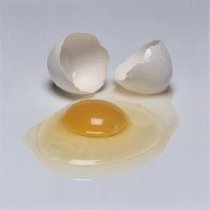Legislation in the EU
EU directives are enforced to minimize infection in layers and breeders. In addition to general EU legislation, many countries have enforced their own regulations to reduce Salmonella infections in poultry. Regulations are often supported by voluntary codes of practice.
European strategies for the control of Salmonella
Different countries have adopted different control strategies for Salmonella with varying degrees of success.
Follow the links to specific countries in the left hand navigation.
July – August 2006 – Additional EC Salmonella legislation
The European Commission adopts two Regulations aimed at reducing and controlling the prevalence of Salmonella in poultry and eggs across the EU.
See Official press release – EUROPA website
![]() 31 July 2006 – Commission Regulation (EC) No 1168/2006 (pdf 57 Kb)
31 July 2006 – Commission Regulation (EC) No 1168/2006 (pdf 57 Kb)
![]() 1 August 2006 – Commission Regulation (EC) No 1177/2006 (pdf 48 Kb)
1 August 2006 – Commission Regulation (EC) No 1177/2006 (pdf 48 Kb)
EU Directives
The Zoonoses Directive contains:
- Rules for the monitoring of flocks for Salmonellaa infection.
- Measures to be taken if breeding flocks test positive.
- Rules for the monitoring of Salmonella at processing and slaughter.
- Rules for the monitoring of Salmonella contamination of feed.
- Targets for the reduction of zoonoses.
In 1999 there were 166 000 officially reported cases of Salmonella in EU countries.
In 2000 the number of reported cases dropped to 150 000.
Recommended targets for December 2006:
- Layer flocks – reduction in flocks infected with S. Enteritidis and S. Typhimurium to 5%.
- Broilers – reduction in all Salmonella serotypes to 10%.
The relevance of Salmonella control is also reflected in the EUREPGAP code of practice for poultry. EUREP is the European organization of retailers. The Good Agricultural Practice code was developed by EUREP as a benchmark for regional and national Integrated Farm Assurance programs.
To comply with this program:
- Broiler flocks must be tested between 21-28 days for Salmonella.
- Test all other flocks 10 to 14 days prior to slaughter.
- Positive flocks must be slaughtered.
- Repopulation of the site is forbidden until confirmed as Salmonella negative.
- Hatcheries cannot receive eggs from flocks infected with Salmonella Enteritidis or Salmonella Typhimurium. Egg supplies from these flocks must cease immediately and all unhatched eggs must be recovered, destroyed and disposed of appropriately.

Food and feed safety
GLOBALGAP
- A private sector body that sets voluntary standards for the certification of agricultural products around the globe.
